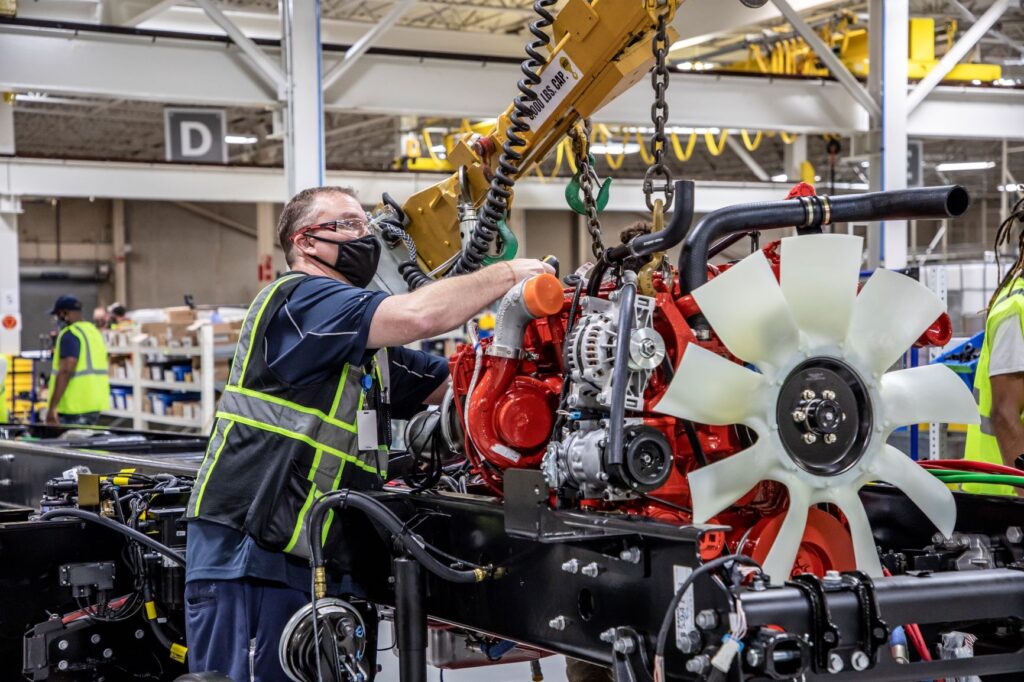Truck orders range-bound as shortages persist
North American fleets ordered 14,000 Class 8 trucks in May, according to preliminary data from ACT Research, while 17,000 Classes 5-7 units were ordered.
“We are coming to that time of year when orders tend to be seasonally weak, as OEMs typically have yet to open their forward-year build schedules, as is currently the case for 2023,” said Eric Crawford, ACT’s vice-president and senior analyst.
“Thus, May’s sequential decline in Class 8 orders from April actually reflects some mild improvement on a seasonally adjusted basis. So, despite broader macro uncertainty about Russia/Ukraine, interest rates, and potential recession, the prevailing theme in trucks is largely unchanged: long backlogs and supply chain-constrained production continue to keep new orders trending within a narrow range.”

Class 8 backlogs stretch through 2022 and Classes 5-7 backlogs are at near-record levels.
“With Class 8 backlogs stretching through 2022 and still no clear visibility on the easing of the all-things shortage, May’s net orders reflect a mild upside surprise, albeit one still in line with the ongoing conservative approach by OEMs looking to limit the risk of overbooking and underbuilding that plagued the industry in 2021,” said Crawford.
Meanwhile, FTR reported preliminary Class 8 net orders in May were the lowest total since November 2021 at 13,300 units. May order activity was down 13% compared to April and 43% year over year.
Don Ake, FTR’s vice-president of commercial vehicles, said, “The supply chain was making slight improvements in the last few months, but some of that progress stalled due to disruptions in China and Russia. The OEMs are not confident they can increase production in the second half of the year; therefore, they are not able to take more orders.
“Demand for new trucks remains healthy. Freight is growing and fleets need more trucks to keep up with customer demands and to trade in older vehicles. The supply of new trucks has been running way behind demand for over a year now and many fleets need to catch up to their replacement cycles. This is like ticket sales for a popular concert. At the beginning, sales are high because there are plenty of seats available. But at the end, fewer tickets are sold because there are fewer seats to sell. There just aren’t many build slots still open in 2022. Orders could even slide under 10,000 in the summer months before the cycle begins for next year.”
Have your say
This is a moderated forum. Comments will no longer be published unless they are accompanied by a first and last name and a verifiable email address. (Today's Trucking will not publish or share the email address.) Profane language and content deemed to be libelous, racist, or threatening in nature will not be published under any circumstances.